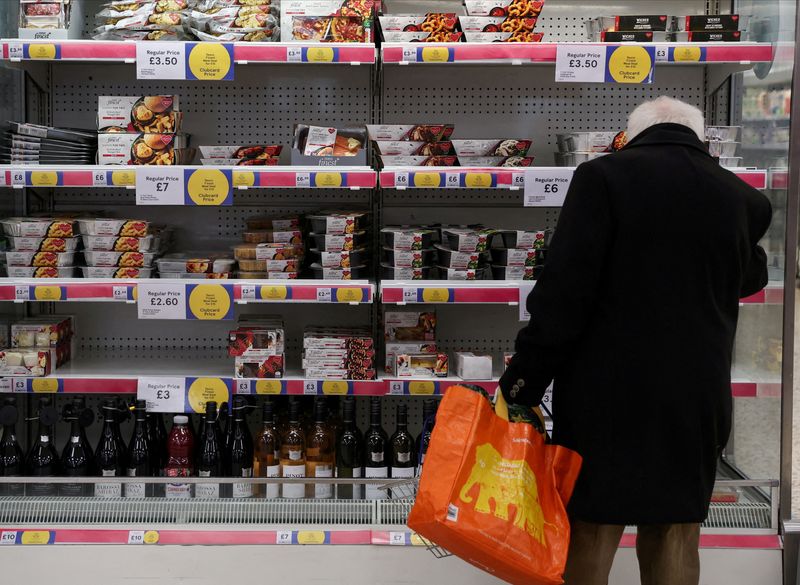
© Reuters. SUBMIT IMAGE: A guy stores beside Clubcard cost branding inside a branch of a Tesco Additional Grocery Store in London, Britain, February 10, 2022. Photo taken February 10, 2022. REUTERS/Paul Childs/File Picture
By James Davey and Sarah Young
LONDON (Reuters) -British grocery store executives declined claims they were profiteering through an expense of living crisis on Tuesday, informing legislators they were not handing down cost pressures completely to avoid clients from going somewhere else.
Skyrocketing food inflation has actually added to the greatest capture on living requirements in Britain because records started in the 1950s, and has actually triggered concerns about who is accountable for record leaps in grocery expenses.
Comparable pressures throughout Europe have actually triggered federal governments in France and Hungary to enforce cost caps on some fundamentals, however executives from market leader Tesco (OTC:-RRB-, Sainsbury’s, Asda and Morrisons informed parliament that was not required in Britain.
” This is increasingly competitive as a market,” Sainsbury’s food business director Rhian Bartlett informed legislators on the lower home of parliament’s company and trade committee.
” We’re typically thought about among the most competitive grocery store worldwide. I’m uncertain what cost caps would contribute to that procedure, aside from administration.”
British food rates began increasing well over a year back, as Russia’s intrusion of Ukraine intensified pandemic-related stress in the supply chain. Food and consume inflation was performing at 18.3% in Might, according to main information.
Sainsbury’s Bartlett stated it had actually kept back from handing down all the prices pressures it deals with: “we are pumping up behind our input expenses, and we’re pumping up anywhere possible behind the marketplace.”
The retail executives stated on top of greater energy expenses they were likewise needing to manage increasing wage expenses, products and logistics expenses. At the exact same time they deal with intense competitors from the German discount rate groups Aldi and Lidi which have actually driven rates down in Britain in the last years.
The market has actually cautioned there is likewise a lag in between a drop in wholesale and market prices. Regardless of that, the expense of some items are beginning to fall, such as milk, bread, pasta and oil.
Asked by one legislator about “a monstrous screen of profiteering”, Tesco’s business director Gordon Gafa stated the group made 4 cent revenue for each pound invested, while Sainsbury’s Bartlett stated it earned less than 3 cent on the exact same step, with both executives arguing that did not represent a high revenue margin.
The market explains that significant durable goods companies such as Unilever (NYSE:-RRB- and Nestle have revenue margins of 16 to 17%.
Tesco, Britain’s greatest merchant, has actually forecasted it will have broadly flat retail adjusted operating revenue this year.
Bank of England policymaker Swati Dhingra likewise stated there was little proof of business stopping working to hand down lower rates up until now, when she took a look at their latest yearly revenues reports.
” It’s not extremely persuading to argue – a minimum of since yet – that grocery inflation is driven by ‘greedflation’,” she stated.
( Extra reporting David Milliken; Composing by Kate Holton, Modifying by Paul Sandle and David Evans)